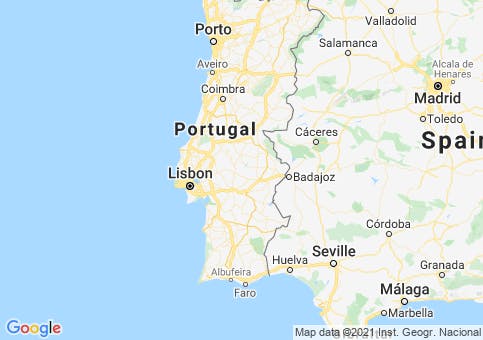The hardest thing in the world to understand is income taxes. —Albert Einstein.
Einstein might have said the same about all taxes in Portugal. They are no different from anywhere else: multilayered, sometimes confusing, sometimes apparently unfair, and, in the words of taxpayers, “always too much.” It is advisable to seek competent accounting and legal advice about your specific financial position and obligations to your home country as well as your newly adopted home. That said, let’s take a look at taxes in Portugal.
All US citizens should remember that their home country, along with Eritrea, is one of only two in the world that requires tax filings and payments from its citizens no matter where they live or work. There are ways to avoid this taxation, but not the reporting requirements. As a matter of fact, there are some special forms that US citizens must file each year, or they will run afoul of the Financial Crimes unit of the IRS. There is no need to fear double-taxation as there are treaties to protect against that between Portugal and the US government. This is a prime example of a time to seek professional advice.
Get Your Free Portugal Report Today!
Get Your Free Portugal Report Today!
Discover why we love a slower pace of life in Portugal and info on other European countries in our daily postcard e-letter. Simply enter your email address below and we’ll send you a FREE REPORT – Explore the Old World in Laidback Portugal.

By submitting your email address, you will receive a free subscription to IL Postcards and special offers from International Living and our affiliates. You can unsubscribe at any time, and we encourage you to read more about our Privacy Policy.
IVA or VAT
As in many other countries, Portugal has a value-added tax. This tax is “affectionately” known as IVA, pronounced “Eva.” The amount charged on your purchases—basically any money you spend on anything in Portugal—varies along category lines.
The highest rate charged for any category is 23%. Look at the bright side: While high, it is not the highest in Europe. That prize goes to Hungary, at 27%, with the Nordic countries for the most part coming in next, at 25%. A good source for current tax and economic information can be found here: www.tradingeconomics.com/portugal/indicators.
The categories are: General at 23%, Intermediate at 13%, and Reduced at 6%. The rates are slightly lower in the Azores and Madeira.
General: Items here include prepared food and most nonessential products and services. It is interesting that Portugal considers legal representatives, such as lawyers, as well as electricity and fire prevention, nonessential services.
Intermediate: This rate is charged on bottled water, tickets for entertainment events, and certain household services.
Reduced: Assessed on non-processed food (including packaged food), as well as lodging.
Knowing these categories is interesting, but for all intents and purposes totally irrelevant to your day-to-day activities. The appropriate rate is included in the price shown for each purchased item or service and automatically assessed and spelled out on any receipts you will receive if that is of interest to you. (When making a purchase, one will almost always be given a fatura, or receipt.)
You will be asked whether you want to include your número de contribuinte on the receipt. This is a method the government uses to encourage the vendor to declare all sales. For the purchaser, there is an incentive or two: First, every quarter or so the government pulls out a random receipt that has a número de contribuinte on it and awards a valuable prize of some type—a car, money, a vacation—to the proud taxpayer; second, depending on the type of taxes paid, some are deducted from the total tax bill owed on your income.
Property Taxes
Buying property in Portugal can be very rewarding because of both the inexpensive real estate available to the careful shopper and the built-to-last homes that are frequently on the market. As in all countries, however, Portugal has its own set of complex transfer taxes, transfer stamps, sales taxes, property taxes, and capital gains taxes.
Just as you relied on the expertise of professionals like real estate agents, lawyers, and government officials to assist you when buying property in your home country in the past, you should do the same here. It’s important to carefully vet and select experts who can acquaint you with the intricacies of the tax code and purchase procedure. The following will provide a bird's-eye view of the property tax situation in Portugal.
Property is taxed annually by the municipality in which it is located. Each municipality assigns a patrimonial value and assesses a rate that generally ranges from 0.5% to 1.0%.
Rural properties frequently have a higher percentage of assessment but a lower value than urban properties.
You can expect to pay much less in property tax annually than you would in the US, Canada, or the U.K. (Expats I have talked with pay just a few hundred euros per year).
If it is a rental property, though, there is an income tax assessed on the revenues derived from that property. Usually this is 28% after expenses, if the owner lives in Portugal.
Rental properties are treated as businesses, so it is advisable before purchasing a rental property to discuss your total tax situation with your personal tax advisor.
Purchasing property in Portugal comes with its own set of tax consequences:
There is a tax on the purchase price, generally around 5%, depending on the location and type of property. This tax is usually paid by the seller.
There is a stamp tax to officially register the sale. This can be as much as another 1% and is usually paid by the buyer.
There are other ancillary fees associated with the transaction involving lawyers, notaries, and sales agents. If the property is to be mortgaged, the bank will insist on filing its own documents, which will come with their own expenses that the buyer may have to pay.
Generally, purchasing a property through a bank will require 30% or more as a down payment. At the time of selling the property there will be a capital gains tax assessed of up to 28% on the profits, depending on the tax situation of the owner and the type of property being sold.
The only other tax consideration with respect to property ownership relates to inheritance taxes. If you’re a tax resident of Portugal and have ordered your affairs properly, your immediate family members are entitled to receive the property tax-free. Again, this is an area for expert advice as to your particular estate. Under Portuguese law, property owned by the deceased must be allocated according to a set framework. One cannot, for instance, leave everything to the poor daughter and nothing to the rich son. It must be split according to certain percentages and the type of property. This ostensibly only applies to those who are citizens of the country, but it’s wise to confirm how this applies to a particular situation.
Income Taxes as a Resident
Portugal considers you a tax resident if you spend more than 183 days in the country per year. As a tax resident of Portugal, you have the obligation to file the necessary forms every year prior to April 30 unless you are an employee of a company in Portugal. In that case, you must file by March 15.
The Portuguese tax department is known as the IRS, easy for Americans to remember. Your taxable income is based on your worldwide:
Income from a job
Business and professional income
Investment
Interest income
Capital gains
Retirement income (not including any government-paid pensions or Social Security)
There are deductions that apply to each type of income and that are taken from the total, leaving the taxable amount. If one or both taxpayers in a married filing are retired and receive pension income, that income is taxed differently from non-retirement income. The system is progressive, starting at 14.5% for adjusted income under €7,000 ($7,385) up to 48% for income over €80,000 ($84,398) on 11/1/2023. Depending on the tax rate into which the taxpayer falls, capital gains taxes will be 28% or possibly lower, if added to general income and the tax bracket is still under 28% for the total amount. This is tax law we are talking about here, so, remember it can change on a seemingly willy-nilly basis.
Being an expat and a tax resident of one country while still a citizen of another country—especially the United States—brings a specific set of conditions and burdens. As mentioned at the beginning of this chapter, all citizens of the US, no matter where they live, are required to file tax forms every year. There are special forms that apply specifically to citizens living in foreign countries with foreign bank accounts, and it is critical that citizens of the United States file these forms on time and accurately to avoid serious penalties.
It’s also important before you choose your visa status and tax filing status that you speak with a competent, experienced tax professional. He or she can answer questions and file returns in your country of citizenship as well as your new country of Portugal. We know people who have experienced confusion with Portuguese tax officials over the tax obligations of US citizens living in Portugal.
If problems are encountered, relax and remember they are not insurmountable. And the cost of hiring professionals to see you through them is well worth it. It’s best to get off on—and stay on—the right foot in your new home.
Get Your Free Portugal Report Today!
Get Your Free Portugal Report Today!
Discover why we love a slower pace of life in Portugal and info on other European countries in our daily postcard e-letter. Simply enter your email address below and we’ll send you a FREE REPORT – Explore the Old World in Laidback Portugal.

By submitting your email address, you will receive a free subscription to IL Postcards and special offers from International Living and our affiliates. You can unsubscribe at any time, and we encourage you to read more about our Privacy Policy.











